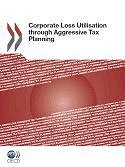 |
FEDERAL PUBLICATIONS INC. |
| |
|
Corporate Loss Utilisation through Aggressive Tax Planning |
 |
||
| Format | Softcover | |
| Catalogue No. | 232011471P | |
| Pages | 92 | |
| Language | English; Aussi disponible en français | |
| Price | $36.00 | |
| Published by the Organisation for Economic Co-operation and Development, 2011. Description: |
| Due to the recent financial and economic crisis,
global corporate losses have increased significantly. Numbers at stake are
vast, with loss carry-forwards as high as 25% of GDP in some countries.
Corporate losses raise compliance risks if aggressive tax planning is used as a
means of increasing or accelerating tax relief in ways not intended by the
legislator, or to generate artificial losses. Corporate Loss Utilisation through Aggressive Tax Planning looks at a number of commonly used schemes and identifies three key risk areas: corporate reorganizations, financial instruments and non-arm's length transfer pricing. Though these are generally used for sound business and economic reasons, some taxpayers use them to obtain undue tax advantages. For example, countries have identified financial instruments that create artificial losses or obtain multiple deductions for the same loss. They have also seen loss-making companies acquired solely to be merged with profit-making companies and loss-making financial assets artificially allocated to high-tax jurisdictions through non arm's length transactions. The report outlines strategies to detect and respond to these aggressive tax planning schemes. Detection usually takes place through audits, special reporting obligations on losses, mandatory disclosure rules, rulings, and co-operative compliance programs. Responses require a comprehensive approach focusing on aggressive tax planning schemes, as well as on their promoters and users. Early engagement between taxpayers and tax authorities in the framework of disclosure initiatives and co-operative compliance programs also has positive effects, convincing some tax payers not to use or promote certain schemes. The report recommends that Governments should also introduce policies to restrict the multiple use of the same loss and to introduce or revise restrictions on the use of certain losses in the context of mergers, acquisitions, or group taxation regimes. Finally, the report identifies emerging threats for tax revenue, such as aggressive tax planning schemes based on after-tax hedges, and suggests that countries analyze the policy and compliance issues related to them. Table of Contents:
|
| Price and availability subject to change.
Shipping and applicable taxes extra. Questions about this product? Please e-mail us. This page last modified: September 15, 2011 |
| Taxation Policy, International main page |
| What's New · Home · Search · Books on Canada · Canadian Maps and Charts · Ordering · Contact Us |
©Federal Publications Inc., 1998 - 2011 425 University Avenue, Ste. 401, Toronto, Ontario, Canada M5G 1T6 Phone: (416) 860-1611 or toll-free 1-888-433-3782 · E-mail: info@fedpubs.com |